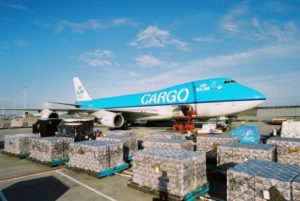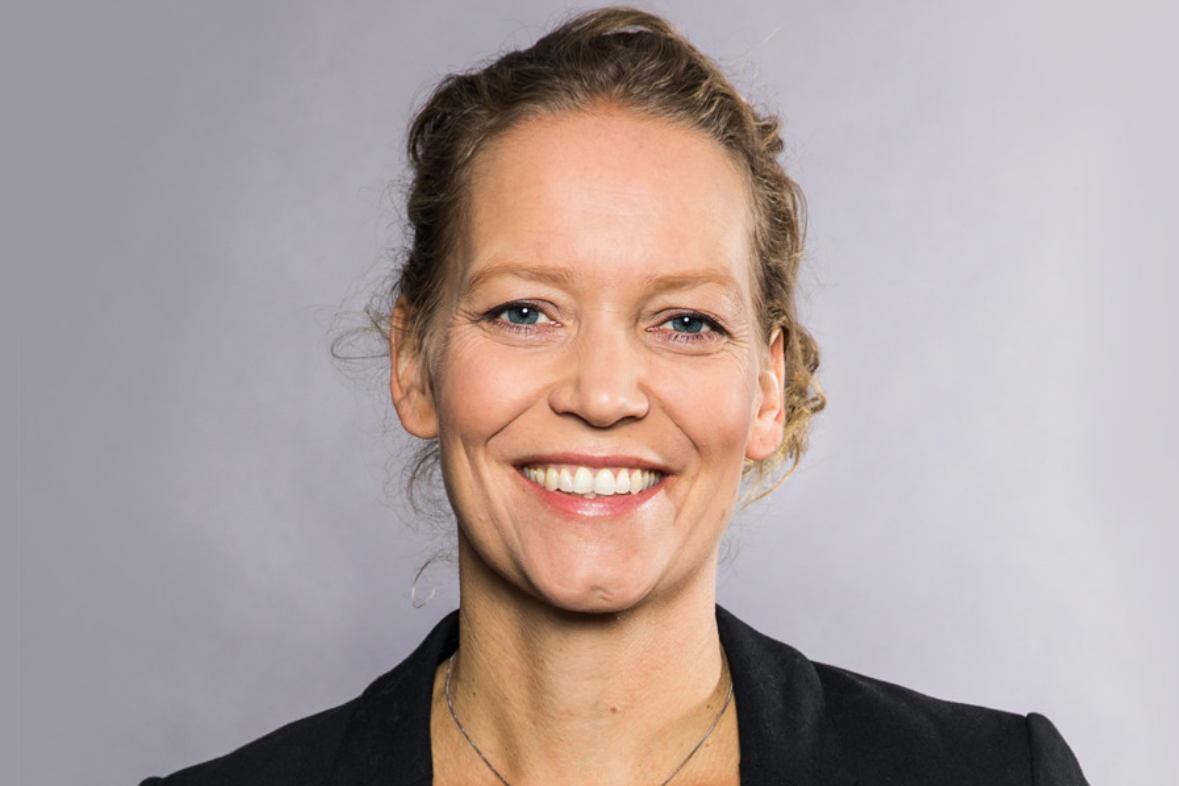Maaike van der Windt trad eerder dit jaar aan als director Aviation Marketing, Cargo and Customer Experience (ACC) van Schiphol Cargo. In deze engelstalige blog gaat ze uitgebreid in op haar ervaringen in de eerste 150 dagen: “Maintaining cargo volume is key.”

The publication of our mid-year 2018 figures revealed mixed results for Schiphol Cargo. While belly volume is up, freighter volume is down.
These results were expected. We continue to face capacity constraints and we reported a 2.7 per cent decrease in overall freight volume compared to 2017 figures. Volume so far this year went down to 843,832 tonnes. These factors inevitably had a negative impact on our numbers.
But there is good news, as well. Belly volume has increased by 2.3 per cent. This comes because of a slight growth in passenger flights and an extension of the network in Latin America.
China remains one of our strongest markets. Our primary destination, Shanghai, reached a volume of more than 31,000 tonnes in the first six months of 2018.
And one of the busiest periods for Schiphol Cargo is still on the horizon. Single’s Day in China, which will take place on 11 November, has become the world’s biggest day for online shopping. Schiphol Cargo will stand ready to manage the workload. Single’s Day continues to be a clear indicator of the growing importance of e-Commerce to our industry.
For more detailed information about our mid-year figures, please visit our Schiphol Cargo website.
Lesson learnt, impressions made
It’s been a busy few months since the Aviation Marketing and Cargo Division launched at Amsterdam Airport Schiphol in April.
So, what have I learnt during my first 150 days with the Cargo team?
Firstly, I had some knowledge of cargo flows through my previous role at Brisbane Airport in Australia, but working at Schiphol has involved a more hands-on approach; as a result I now have a better understanding about how cargo stakeholders work together to ensure an efficient supply chain.
Likewise, the sheer scale of e-Commerce, and how quickly it is developing in China, impressed me. The predictions that e-Commerce will drive cargo flows in the years to come seem all too accurate. That’s why we expect that China will continue to be our strongest market for e-Commerce, as indicated by our mid-year figures.
I’m also diving into areas that are new for me. Pharma, for example. I’m learning that, although it is currently a relatively small market, it is of great importance to the cargo chain. I’ve also noticed how the operational side is still quite traditional, with a lot of manual labour involved.
Before April, I didn’t have a full understanding of just how important flowers are to Schiphol. But now I know the scale of the business and the importance for the Netherlands, and I think it’s incredible. And the importance for Cargo is clear: the flower business accounts for 25 per cent of the import flow at Amsterdam Airport Schiphol.
As part of our commitment to flowers, we are part of the Holland Flower Alliance. There are many interesting developments taking place within the alliance, such as a data-sharing pilot scheme on the Nairobi-Amsterdam route, and a prototype flower box project to develop the ‘ideal flower box’.
We hope to have more information about these developments soon, so stay tuned.
 Maintaining cargo volumes is key
Maintaining cargo volumes is key
At Schiphol, planning for sustainable future growth is very important to us. We want to ensure an efficient and reliable service for our Cargo Community.
In recent months, there have been reports about developments surrounding the local rule at Amsterdam Airport Schiphol. This is a proposal to monitor cancelled flights and already returned slots by airlines to the slot coordinator, and to allow these flights to be converted into new slots. If approved, this could be taken up by airlines, including full freighter operators.
The first local rule suggested by the airlines was rejected by the government. The Coordination Committee, in which we take part of, is now looking into a potential new local rule. This is an ongoing situation, so we cannot comment on it yet, but we are hopeful for a positive outcome for Schiphol and our partners.
In the meantime, it is imperative for us to comply with the Alders Agreement – not just because it is the law, but also because we take our responsibility as a passenger and cargo hub and a member of the Amsterdam community seriously.
We continue to aim for sustainable future growth, in which safety is our key priority. And we are equally as committed to maintaining the cargo volume at Schiphol, despite current capacity constraints.
Building the Smartest Cargo Hub together
Earlier this year, we reported that our strategy to become the Smartest Cargo Hub in Europe has three pillars.
First, our priority is to work with our partners to maintain and grow the current cargo flow. Second, we want to ensure our airlines are satisfied, and assist them in optimising their capacity.
And third, together with our partners we are implementing the Smart Cargo Mainport Program (SCMP), which aims to improve cargo flows via increased use of data sharing. Another step in our efforts to continuously innovate. We are centralising information and optimising landside logistics, and even more developments will be announced in the future.
Smart innovations are key for our aim of sustainable future growth, and I look forward to announcing further developments as SCMP continues to develop.
 The Brexit factor
The Brexit factor
There continue to be many challenges for the aviation and logistics industry. International political developments, such as the ongoing Brexit negotiations, make this year especially complex.
Many questions are being raised about how the Customs process between Europe and the UK will look in the future. So far, no concrete answers have been delivered. We must unfortunately continue to wait. Brexit was a topic of discussion at a recent VrachtCafe, which highlighted concerns from the logistics community about how the future of import and export with the UK will look.
Along with the rest of the Cargo Community, we are monitoring the situation as the negotiations continue, and we are hoping for the best, but preparing for the worst.
Thanks, and see you soon
I would like to take this opportunity to thank everyone for their warm welcome over the past few months, and I look forward to getting to know you better as we continue to work together.
And on a final note, our next VrachtCafe will be held on 20 September, we look forward to seeing you there!
